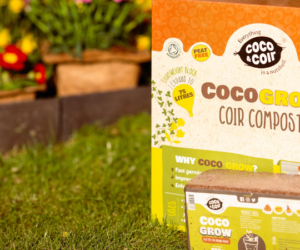Why Native Plant Gardens Are Gaining Popularity in the UK?
The one gardening trend that has stood out in the last few years is native plant gardening, and it is making the right impact on the environment!
To beginners, native gardening involves cultivating plants indigenous to the local region rather than exotic species.
These non-native species can cause many long-term and short-term impacts on the ecosystem by
- Modifying the pH and chemical composition of the soil.
- Exhibiting invasive behaviour, spreading rapidly and aggressively in their new environments.
- Dominating the landscapes and threatening the survival of slow-growing native plants.
Did you know?
Some of the most popular house plants, like aloe vera, snake plants, peace lilies and spider plants, belong to the non-native category.
What Are the Benefits of Native Gardening?
Biodiversity Conservation
One of the primary advantages of native gardening is its positive impact on biodiversity conservation. Indigenous plants provide essential food and habitat for local wildlife, including birds, butterflies, bees, and other pollinators. By supporting native plant species, gardeners play an important role in preserving the equilibrium of ecosystems and protecting endangered wildlife populations.
Water Conservation & Reduced Maintenance
Regional plants are well-adapted to the climatic and soil conditions of their local environment, making them more resilient to drought and water scarcity. Another advantage is their potential for reduced maintenance. These plants require minimum care and simple, effective products like all-purpose compost to thrive, in contrast to the fertilisers and pesticides required by exotic species to survive.
Resilience to Climate Change
As the impact of climate change becomes increasingly evident, native gardening offers a practical solution for building resilience in our landscapes. Native plants have evolved to withstand the challenges of the local climate, including temperature fluctuations, extreme weather events. By planting native species, gardeners can help mitigate the impacts of climate change and foster greater ecological resilience in their communities.
Impact on the Environment
- Enhance Wildlife Habitat: Indigenous plants provide essential food and shelter for wildlife, supporting diverse ecosystems and promoting species richness.
- Improve Soil Quality: Native plants help improve soil structure and fertility, reducing erosion and nutrient runoff while promoting microbial diversity.
- Sequester Carbon: Native vegetation helps mitigate the effects of the climate crisis by aiding carbon sequestration — the process of capturing and storing atmospheric carbon dioxide.
Popular Native Plants to Grow in the UK
Bluebell
- Best Months to Grow: Bluebells are best planted in early autumn (September to October) or early spring (March to April).
- Care Tips: Bluebells thrive in partially shaded areas with moist, well-drained soil. Plant bulbs at a depth of 5-8cm (2-3 inches) and maintain moderate moisture levels during the growing season. Avoid disturbing established bluebell colonies, as they naturalise effortlessly.
Primrose
- Best Months to Grow: Primroses are typically planted in early autumn (September to October) or early spring (March to April).
- Care Tips: Primroses prefer partial shade and humus-rich, moist soil. Plant them at the same depth as they were previously growing and keep the soil consistently moist, especially during dry spells. Clip spent flowers to encourage prolonged blooming.
Common Heather
- Best Months to Grow: Common heather is best planted in late summer (August to September).
- Care Tips: Heather thrives in acidic, well-drained soils and full sun to partial shade. Water newly planted heather regularly to establish roots, but avoid overwatering once established. Prune slightly after flowering to retain shape and encourage bushy growth.
Hawthorn
- Best Months to Grow: Hawthorn is typically planted in autumn (October to November) or early spring (March to April).
- Care Tips: Hawthorn prefers full sun to partial shade and well-drained soil. Water newly planted hawthorn trees regularly until established, then water during dry spells. Trim during late winter or early spring to eliminate dead or unhealthy branches and uphold a neat appearance.
English Oak
- Best Months to Grow: English oak is best planted in late autumn (November) or early spring (March to April).
- Care Tips: English oak thrives in full sun and well-drained soil, although it can tolerate a range of soil types. Ensure consistent watering for young oak trees until they establish themselves, and apply mulch around the base to retain moisture and inhibit weed growth. Prune in late autumn to remove dead or crossing branches.
Lavender
- Best Months to Grow: Lavender is typically planted in late spring (May) or early autumn (September).
- Care Tips: Lavender requires full sun and well-drained soil, preferably alkaline or neutral. Water newly planted lavender regularly until established, then water sparingly to avoid waterlogged conditions. Trim after blooming to maintain shape and encourage business.
Native gardening is not merely about cultivating plants but about fostering connections—with the land, local ecosystems, and the countless organisms that call them home. With the right gardening knowledge, trusted tools and peat-free compost, you can effortlessly make your garden more eco-friendly and sustainable.
Get Your Hands Dirty With Some More Gardening Blogs?
Here are our most popular blog posts on sustainable gardening. Do give them a read!
- Embracing Sustainable Gardening In 2024
- How To Set Up a Greenhouse for Sustainable Year-Round Gardening
- Sustainable Gardening Methods for Every Gardener
Calling All Sustainable Gardening Heroes!
We would love to hear some of your inside tips on sustainable gardening and grooming of native plants. Please post and tag @cocoandcoir on Instagram with pictures of your sustainable garden and some cool hacks for your peers to follow. We’ll credit you for any images we use and you’ll also be in with a chance to win some Coco & Coir goodies for your garden.











